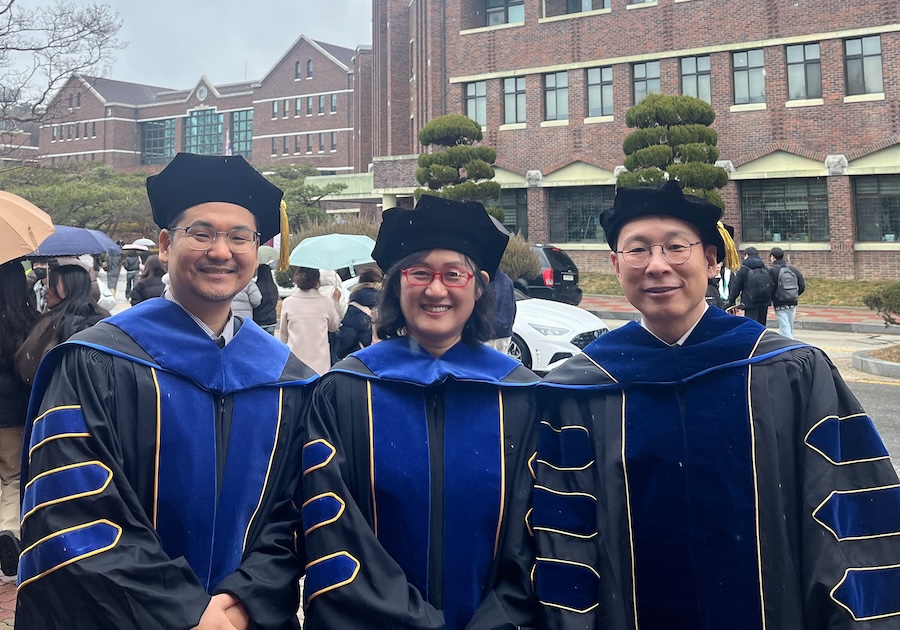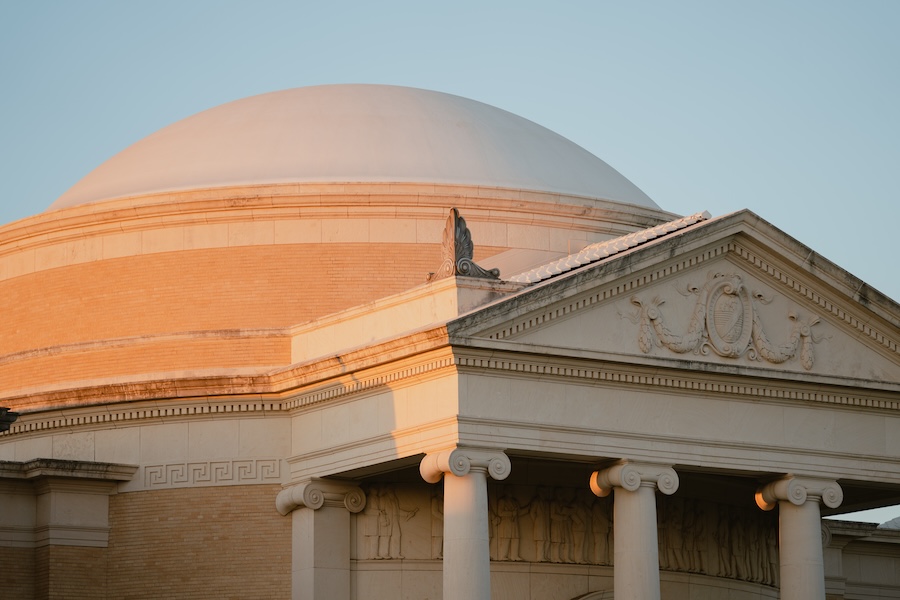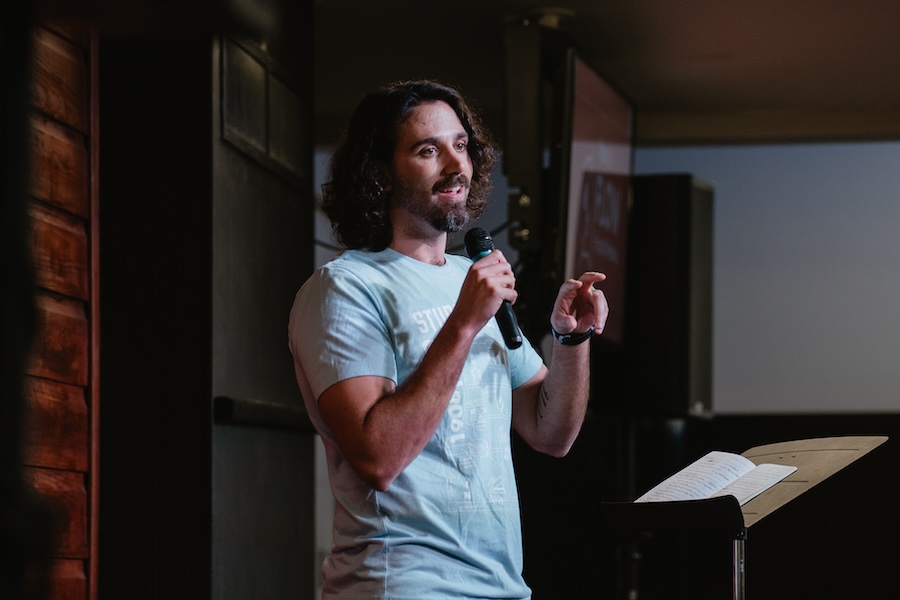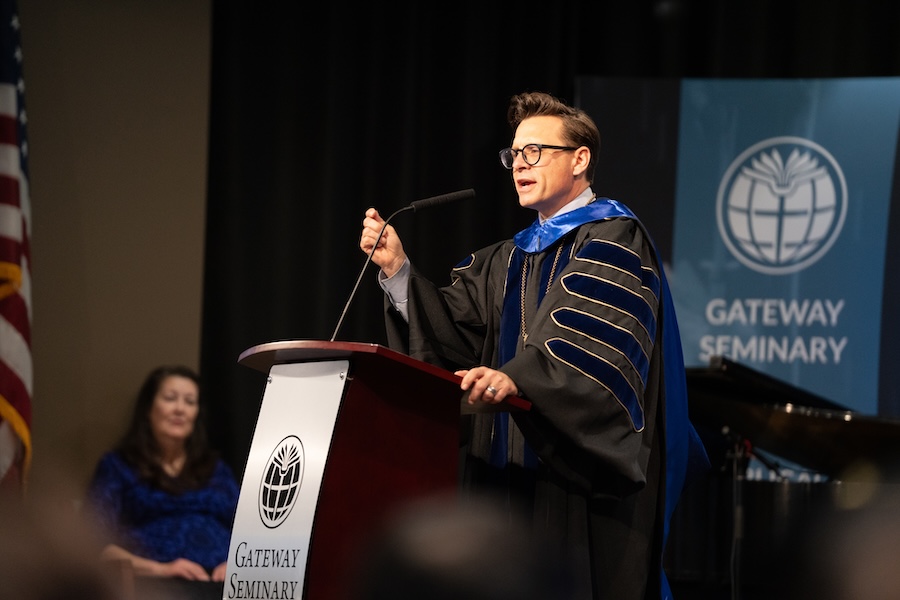After journey to discover her calling, missionary finds London is door to the nations

Editor’s note: This article originally appeared in the Fall 2024 issue of Southwestern News.
For Elisabeth Coleman* (’23), the tug toward international missions was a gradual process that stretched over several years. But she now finds herself in London, a city she never imagined she would be living in as a journeyman missionary.
A Dallas native, Coleman attended Texas A&M in pursuit of a degree in communications, while she tried to figure out what it was God wanted her to do, since she already believed He was leading her into some area of ministry.
“I struggled to kind of figure out what I wanted to do,” Coleman says.
It was during her final years of college that Coleman first started to consider looking into missions opportunities, starting with short-term missions through her local church to places such as Austria. Through those international trips, Coleman’s exposure to the rest of the world grew and she was able to partner with different International Mission Board teams and take part in intentional Gospel conversations with complete strangers.
“I think the Lord did kind of two things,” Coleman says of her time of attending church during college. “… Deepen my heart for the local church, and the importance of having healthy churches and discipling people through that … but then also really expanding my view beyond, not just the world that I grew up in.”
Around this time, Coleman says she knew she was being called to make disciples in a mission field, whether that mission field was on her college campus, through the youth she was serving as a member of her church’s youth ministry leadership, or overseas such as when she went on international mission trips.
Coleman says she could see “the Lord was doing so much across the world. And to get to be a part of that in some way, was a gift and a privilege. … The Lord kind of started expanding my eyes to, I think, really ask the question of … if it’s not in the US that you have something specific for me, what would it look like to serve you among the nations abroad?”
But Coleman says what followed was five years of redirections as she completed college and continued to serve in her church’s youth ministry. Through prayer, speaking with others, and the desire to steward well the calling she felt on her life, Coleman says she “felt like pursuing formal education in theological education was the path that the Lord was kind of opening up for me, and so that’s why I ended up at Southwestern to study.”
Coleman enrolled in Southwestern’s online courses for the first year, pursuing a Master of Divinity with a concentration in biblical counseling. While missions was still something her mind kept turning back toward, Coleman says the MDiv provided a good base of theology studies that she could use in any ministry.
Coleman says she is grateful for her instructors, including professors of biblical counseling Lily Park and Jonathan Okinaga, and Madison Grace, provost and dean and professor of the School of Theology, who fulfilled her desire to “grow and to learn and to be in a position where, not that I was going to know everything, but to be equipped, to have resources, to be taught by others who had been in ministry.”
“I just really appreciate their leadership and the way that they conducted their own lives,” Coleman says of her professors, who emphasized the character of their students and not just retaining information. Those professors “sought to see us flourish as Christ followers, but also as future workers in the church and beyond.”
While pursuing her degree, learning from her professors, other students, and the Word of God, Coleman says she began to feel that pull toward missions again. With one more year to go before graduation, she began the application process with the International Mission Board for the journeyman program, which would place her with an international mission team for two years.
But Coleman cut that application process short as doors seemed to close and she again wondered if that was what God was calling her to do. After another seven months of praying, conversations, recognizing the need for the Gospel overseas, and not finding a ministry in the United States that she felt God wanted her to participate in, Coleman knew it was time to take the final step toward missions during the fall of 2022.
“I think the Lord made it really abundantly clear that what He had for me next, at least for the immediate future, was to serve Him overseas,” Coleman says. “That pull of wanting to serve the Lord in this specific capacity just became very apparent through a lot of different conversations. And so I re-opened the application. And … there was a lot of peace just about going forward.”
Coleman was accepted into the journeyman program, and, after graduating from Southwestern in May, found herself in London by the end of September in 2023, even though she never pictured herself as a missionary in Europe.
“London is not where I thought I would be, of all places,” Coleman says, having imagined herself in a country considered closed to or unreached by the Gospel.
While she did not have to learn an all-new language, Coleman says she still had much to learn about the United Kingdom culture even in day-to-day actions, such as using the public transportation system, going grocery shopping, having tea after Sunday church services, and learning to understand different phrases.
Coleman is a member of the North London mission team, and specifically part of a team that visits three different universities each week to engage with students through Bibles studies, surveys, prayer walking, game nights, sports, and whiteboarding to encourage questions and conversations. She also partners with a local, international church where last term she discipled a group of young women.
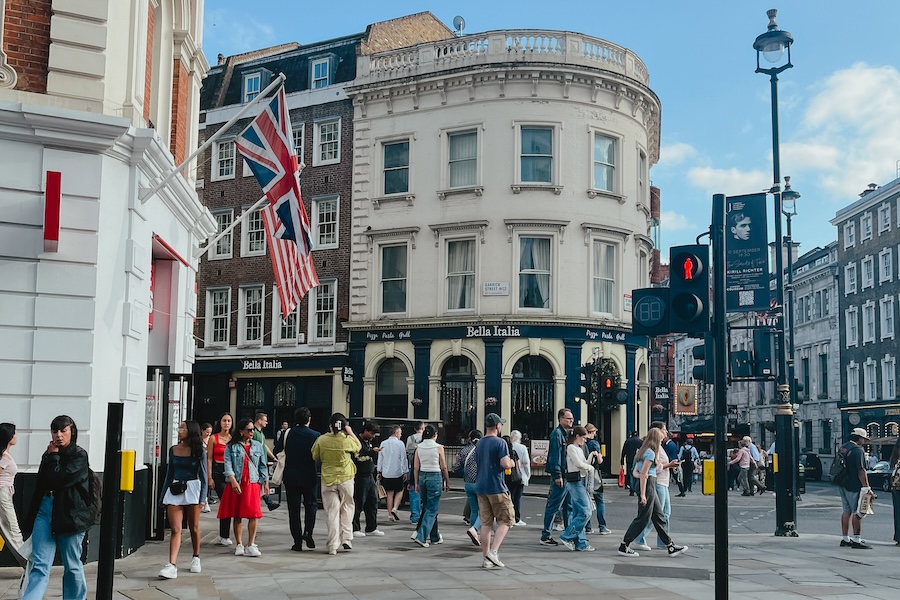
In London, Elisabeth Coleman has found people from a number of other nations that she can share the Gospel with.
But while Coleman did not plan to be a missionary in London, she quickly learned that there are opportunities for the Gospel there that can be found in few other places. Not only is the city large, even for Coleman who grew up in Dallas, but scores of countries are represented on the campuses she visits and even on the buses she rides, where she says she can sometimes overhear conversations in five languages simultaneously.
“The significance of the city and the position it has to reach the nations is huge here,” Coleman says. “There are students and just people in general who have moved to the city from all over the world.”
The multi-ethnic nature of the city is also found at the universities in central and west London, where Coleman visits weekly. At one of those universities, Coleman says there are 159 countries represented. Some of the students she has spoken with are from countries that missionaries are not welcomed into and she would not be allowed to speak about Jesus openly, while others do not have access to Bibles in their country.
“I think the Lord has used being here to really change my mind about what I thought I was walking into,” Coleman says. “Where I thought the state of Europe was, what it’s like living here … I can’t imagine kind of living elsewhere at this point right now.”
Because of the high level of international diversity, Coleman says she does experience what she refers to as “cultural whiplash,” when conversations can change drastically from one person to the next.
Coleman said that is another way her education at Southwestern prepared her, by training her in core doctrines of the faith and apologetics so she can answer questions from people who might have grown up as Hindu, Muslim, or atheist.
But despite their diverse backgrounds, Coleman says university students are at a perfect time in their lives since they are looking to the future and asking questions.
“With the university students, they’re already in this position of they’re outside of their parents’ home, they’re asking these questions about life,” Coleman says. “And so I think so many of them are searching for something.”
Coleman says that stage in their lives is an ideal time for her and other missionaries to step up and show love to them in tangible ways, and tell them there are answers to their questions about life, purpose, and identity.
After a year of living in London, the strain of being in a culture different from the U.S., living in a large city, and constantly having conversations with people has taught Coleman the importance of finding times of rest and personal abiding in Jesus. Fortunately, Coleman says London is one of the greenest cities she has seen, providing many opportunities to visit parks or other quiet places to rest.
While there is also a strong Christian legacy in and around London and deep in its history, Coleman says it still often feels like a spiritually dark area filled with hearts hardened against the Holy Spirit.
“It’s hard ground,” Coleman says of the spiritual state of London. “And feels like sometimes you have all these conversations and you’re like, did that go anywhere?”
Just a short distance from her own church in London is the church that was once pastored by John Newton, the author of the hymn “Amazing Grace” and former slave trader who helped to end British slave trade. That is the same church once attended by William Carey, considered the father of the modern missionary movement. So many areas of the world are seeing the Gospel shared and Christianity grow because of faithful Londoners from the past, but now Coleman says that spiritual need has come full circle.
“It can feel really dark and can feel like there’s a lot of need here,” Coleman says. “There’s so much, but the Lord’s doing something here, and He’s used this city to bring the nations here. And people are hearing the Gospel, and they can take that back into countries across this world.”
During her remaining year as a journeyman in London, Coleman says she and others on her team will continue to try to live out the transformation that has happened in their lives because of God’s gift of salvation and then verbally share that gift with others she meets on the university campuses, at their church, or in the city. She has learned that her responsibility is to be faithful to God, and let the results and responses be according to the work of God.
“So much of what we’re called to is so much beyond our actual ability,” Coleman says. “And I think that’s the best place to be, when we recognize that we are utterly and absolutely dependent on the work and the power of the Lord to move and to change people’s lives and hearts and to change our hearts as well.”
After her two years as a journeyman ends, Coleman says her opportunities are many as to what she does next. Since she has already finished her education through Southwestern Seminary, she could go right into long-term mission work with the IMB, serve at a church or get another job, and continue work in London or another country.
But while she had initially been hesitant to serve in London, Coleman says she now recognizes the need there and the impact missions has there on the rest of the world.
“It’s so neat to live here and to do ministry here,” Coleman says. “And it’s hard and challenging, but it’s also probably one of the greatest gifts to be able to step into as well.”
*Name changed for security reasons and to protect future mission work.
Michelle Workman is the managing editor of Southwestern News.
